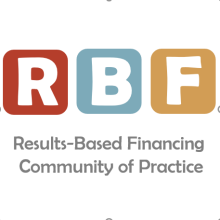Results Based Financing
- 2 million more children having their growth monitored each year /
- Over 900 health facilities trained in data management /
- 130,000 more women receiving antenatal care services per year /
GPRBA provides innovative financing solutions that link funding to achieved results. GPRBA’s results-based financing (RBF) approaches provide access to basic services like water and sanitation, energy, health and education for low-income families and communities that might otherwise go unserved.
Results-Based Financing Results-based financing includes a range of financing mechanisms where financing is linked and provided after the delivery of pre-agreed and verified results. RBF approaches can play a big role in the delivery of infrastructure and services. RBF approaches have been used in a variety of forms across a range of sectors. One such solution, results-based financing (RBF), leverages existing or new financial resources to incentivize results by paying for desired outcomes or outputs. RBF approaches are diverse and have emerged in different contexts and with different partners. This is just one example of the how the Results-Based Financing programme in Zimbabwe is prioritising women’s health in a bid to reverse worrying maternal mortality rates, which currently stand at 433. Results-based financing (RBF),1 leverages existing or new financial resources to incentivize results by paying for desired outcomes or outputs.2 RBF approaches are diverse and have emerged in different contexts and with different partners. Generally, however, they share two characteristics (SIDA 2015): 1) Payment is based on results.
Improving health outcomes using results-based financing (RBF)
Crown Agents is implementing the RBF programme, in partnership with the Ministry of Health and Child Care (MoHCC), in 42 rural districts in Zimbabwe since 2014. The programme is supported by the Health Transition Fund and now the Health Development Fund (HDF), covering 830 rural health facilities with an estimated total catchment area population of 6.6 million. Supported by the World Bank, Cordaid is implementing in 18 districts to ensure the whole country is covered.
Our approach:
- Contracting not-for-profit health facilities, provincial and district health executives and community-based organisations to deliver specified services
- Verifying the delivery of these services, including quantitative and qualitative checks
- Paying out against the contracts
- Building the capacity of the Ministry of Health and Child Care (MoHCC) in RBF operations at all levels
- Ongoing evaluation of the RBF model, including identification of possible improvements
Crown Agents has been awarded the 5-year contract from 2016-2020 to continue implementing RBF under the Health Development Fund.
Read more in our June 2018 report below.
Blog Blog
BlogHealth / Fund Management / Programme Design, Delivery and Evaluation
ProjectHealth / Fund Management / Programme Design, Delivery and Evaluation
Training courseResults Based Financing In Health
Training courseResult Based Financing In Tanzania

